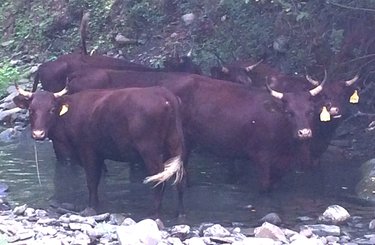Esperance Historical Society
Naturalist William Beebe once said, “When the last individual of a race of living things breathes no more, another Heaven and another Earth must pass before such a one can be again.”
Not long ago in our past, the lives of people were bound intimately with their animals. Food, clothing, transportation — all were provided by animals. Pervasive change has occurred in agriculture over the past half-century making it hard to imagine the intricate relationship farm families had with their animals, unless they lived it themselves or sat transfixed by a roaring fire listening to the nostalgic stories of their grandfathers and grandmothers.
Changes in farming and society have relegated many breeds of domestic animals to the ash heap of time — making them rare and nearly extinct.
Sunday, March 15, at 2 p.m., the Esperance Historical Society will meet at the Two Saps Sap House on 303 Cripplebush Road in Central Bridge while members and visitors learn about rare breed animals from Dr. Thomas Slater.
He will discuss what breeds of domestic animals are in danger of becoming extinct and how we know that. As part of the discussion, he will focus on the cattle breed American Milking Devon, which originally came to America with pilgrims in 1623.
Thomas and Gina Slater have over 30 head of this rare breed, of which there are only about 1,500 alive today. Their farm, Patriot’s Retreat Heritage Farm, is also host to some heritage breed chickens, guinea fowl, and a self-invited African Goose.
To get to the sap house, take Route 30A to Cripplebush Road, take the Cripplebush Road to the end past the farmhouse and pound at 303 Cripplebush Road, past the open fields, and through the gate — the sap house will be on your right.
There will be free pancakes, eggs, and sausage with real maple syrup.
For more information, call Ken Jones at 518-875-6854.
